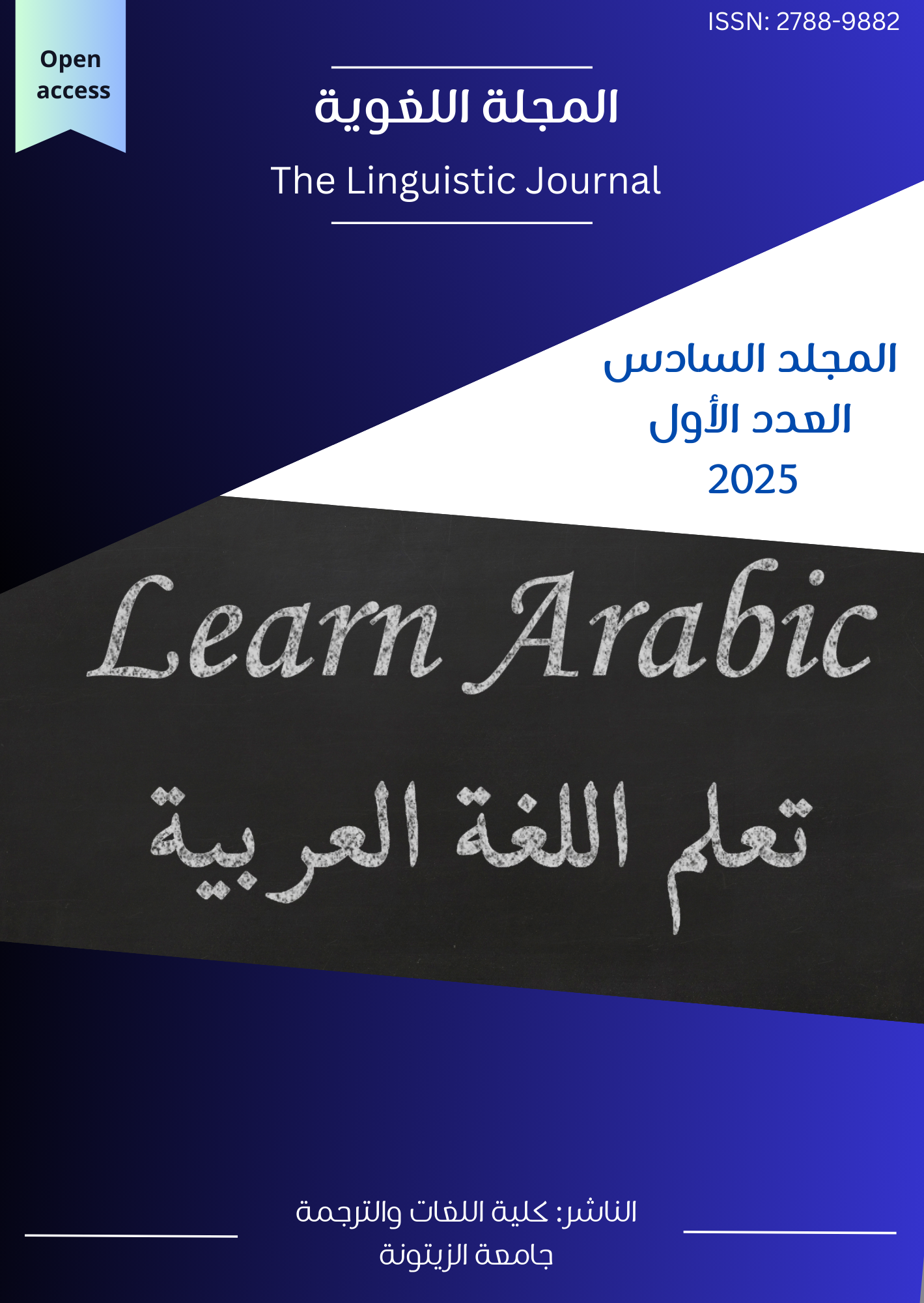The Underutilization of Dictionaries in Libyan EFL Classrooms: Challenges, Perceptions, and Pedagogical Implications
Keywords:
Dictionaries, Vocabularies, TeachersAbstract
Dictionaries are an essential tools for language learning. They are presenting a structured approach to recognizing and using vocabulary. This study investigated the limited use of dictionaries by English as a foreign language (EFL) students and teachers in Libyan public secondary schools in the city of Al-Asaba, with focused on evaluating the effectiveness of dictionary skills instruction on students' reference abilities and habits. Researcher employed a mixed methods approach, utilized a survey with Likert scales and open ended questions for both students and teachers, as well as qualitative interviews and classroom observations. The participants included sixty (60) students their ages were between sixteen (16) up to nineteen (19) years old. The males were about twenty-six (26) students, while the females were thirty-four (34). All of them are enrolled in the first, second and third grades of secondary school in the city of Al-Asaba, and twenty (20) teachers from selected secondary schools. The findings shown a significant underutilization of dictionaries despite an overwhelming consensus among students that these tools were beneficial for comprehending new vocabulary. A considerable number of students do not use dictionaries, and many lack the confidence to use them independently. Furthermore, students response also indicated that teachers do not encourage dictionary use during classroom lessons. To address this, there is a clear need for systematic instruction in dictionary skills, the promotion of a combination of monolingual and electronic resources, and professional development for teachers to maximize the pedagogical value of dictionaries in the Libyan EFL context.






